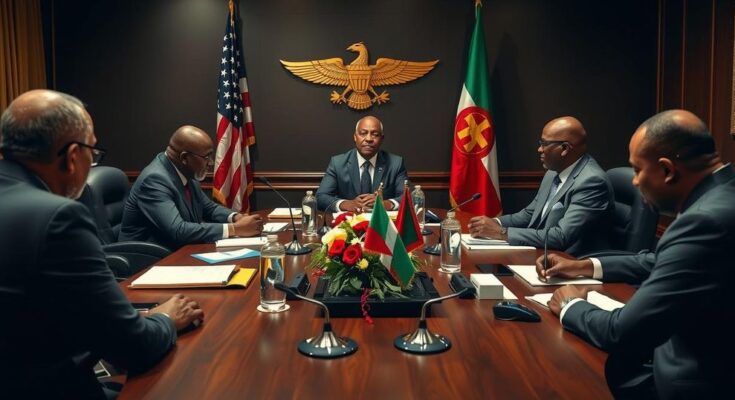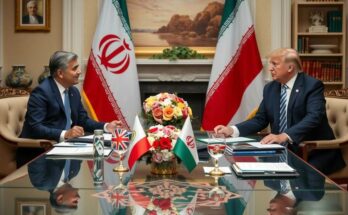South Sudan’s President Salva Kiir Mayardit confirms that the Tumaini peace negotiations aim to integrate hold-out groups’ concerns within the existing Revitalized Peace Agreement, rather than replacing it. He emphasizes urgency in the negotiation process and outlines imminent elections in December 2026. The humanitarian crisis highlights the need for leaders to ensure aid accessibility, as emphasized by UN officials, urging collaboration to address the underlying causes of conflict.
In a recent statement at the 8th annual Governor’s Forum in Juba, South Sudan’s President, Salva Kiir Mayardit, reaffirmed his commitment to the Tumaini peace negotiations with hold-out groups, asserting that these discussions do not aim to annul or replace the existing Revitalized Peace Agreement. He emphasized that the goal is to integrate the concerns of these groups into the current framework to foster inclusivity and prevent further conflict.
President Kiir highlighted the restructuring of the government delegation as a strategic move to expedite the negotiation process. Additionally, Nicholas Haysom, the Special Representative of the Secretary-General of the United Nations and Head of the UN Mission in South Sudan, characterized the extension of the transitional period by two years and the postponement of elections as unfortunate yet unavoidable, stemming from a lack of progress on vital deliverables in the peace agreement.
Haysom underscored the necessity for a unified and realistic action plan over the next two years, urging all parties to adopt a prompt and cooperative approach to honor their commitments to the citizens of South Sudan. In addressing the delayed elections scheduled for December 2026, President Kiir encouraged potential candidates to prepare for their political ambitions, highlighting that two years is ample time for preparation.
The ongoing humanitarian crisis, exacerbated by floods, food insecurity, and the influx of returnees from neighboring Sudan, necessitates urgent action from national and state leaders to ensure aid accessibility. Anita Kiki Gbeho, Deputy Special Representative of the Secretary-General, called upon leadership to remove barriers to humanitarian access, citing ongoing challenges that hinder effective response efforts.
Overall, the Governor’s Forum serves as a pivotal platform for national and state leaders to address pressing issues collaboratively, with a shared goal of realizing lasting peace and stability in South Sudan.
The recent developments in South Sudan’s peace negotiations come against the backdrop of the Revitalized Peace Agreement, which was established in 2018 amidst ongoing conflict. Various hold-out groups have since emerged, prompting the government to seek dialogue through the Tumaini initiative. The situation is further complicated by a severe humanitarian crisis, characterized by widespread food insecurity and conflict-related displacement, necessitating concerted efforts from both South Sudanese leaders and international partners to address the root causes of turmoil and facilitate aid to affected populations.
In conclusion, President Salva Kiir’s commitment to the Tumaini peace negotiations exemplifies a proactive approach to fostering dialogue and inclusivity in South Sudan’s peace process. The call for urgency and collaboration among stakeholders is vital to overcoming the formidable challenges the nation faces. As leaders work towards improving humanitarian access and preparing for future elections, the emphasis on building resilience and addressing core issues will be crucial for achieving long-term peace and stability.
Original Source: www.socialnews.xyz




